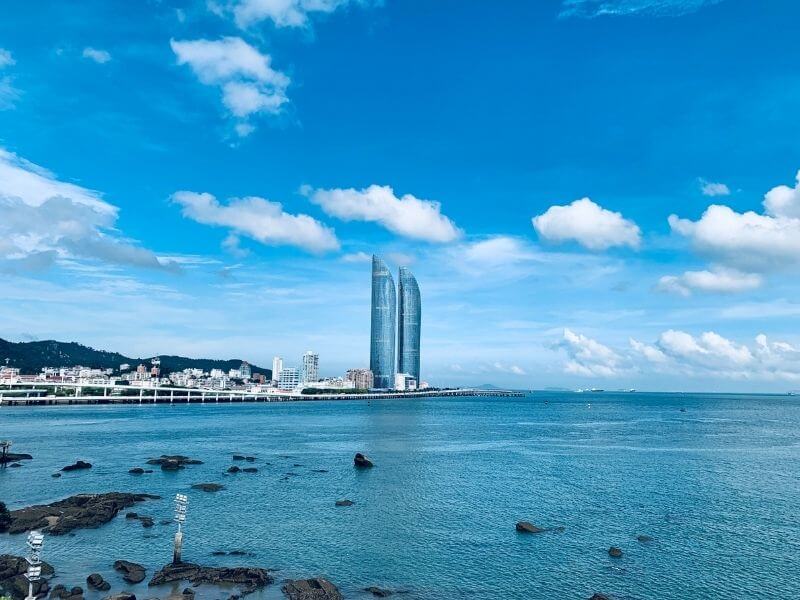
This series will continue to focus on the cases accepted by China International Commercial Court (CICC). As I’ve introduced the cases of the First International Commercial Court in a previous post (Series -01), this post will move on to the cases accepted by the Second International Commercial Court.
As of 21st Aug. 2019, the Second International Commercial Court had accepted five cases, all of which were related to shareholders of Red Bull Vitamin Drink Co., Ltd. Therefore, these five cases are actually a series of cases that can be divided into two groups. The first group consists of three cases, but we have not yet found any details thereof The second group comprises two cases, of which the pre-trial conferences have already been held, and one of the two cases has been heard.
Related Posts on CICC Case Tracking:
- CICC Case Tracking Series -04: On CICC’s Jurisdiction over the Judicial Review of Arbitration with Luck Treat Ltd. Case as an Example
- CICC Case Tracking Series - 03: China’s Second International Commercial Court (As of 20190821)
- CICC Case Tracking Series – 02: On Jurisdiction with Asia Optical as an Example
- CICC Case Tracking Series - 01: China’s First International Commercial Court (As of 20190821)
The first group of cases:
Case 1: the dispute over profit surplus distribution between Inter-Biopharm Holding Limited and Red Bull Vitamin Drink Co., Ltd.
Case 2: the dispute over liability for damaging the company's interests between Market Global Holdings Limited and Saravoot Yoovidhya (许馨雄), Red Bull Vitamin Drink Co., Ltd.
Case 3: the dispute over liability for damaging the company's interests between Inter-Biopharm Holding Limited and Chanchai Ruayrungruang (严斌), Red Bull Vitamin Drink Co., Ltd.
Detailed information on these three cases is not yet available. [1]
The CICC has specifically pointed out, while mentioning these five cases above, that “since the Second International Commercial Court of the SPC has accepted a group of Red Bull series cases”. And according to the fact that the two cases in the second group were transferred from lower courts, it is fairly to guess that the three cases in the first group are directly accepted by the CICC. And from this speculation, we can assume that among all the CICC cases, there are not only cases transferred from lower courts, but also some instituted directly before the CICC. [2]
The basis for the CICC's jurisdiction over these three cases is most likely to be Article 2(1) of the "Provisions of the Supreme People's Court on Several Issues Regarding the Establishment of the International Commercial Court" (最高人民法院关于设立国际商事法庭若干问题的规定) (Provisions on CICC), i.e. International commercial cases of the first instance where the parties have agreed to submit their disputes to the jurisdiction of the SPC in accordance with Article 34 of the PRC Civil Procedure Law and the amount in controversy is more than RMB 300 million yuan.
However, the above speculation has not been confirmed yet. We will continue to track these cases.
The second group of cases:
Case 4: the shareholder qualification confirmation dispute between Ruoychai International Group Co., Ltd. (domiciled in Thailand) and Red Bull Vitamin Drink Co., Ltd., Red Bull Vitamin Drink (Thailand) Co., Ltd. ((2019) Zui Gao Fa Shang Chu No. 7 )((2019)最高法商初7号)
Case 5: the shareholder qualification confirmation dispute between Ruoychai International Group Co., Ltd. (domiciled in Thailand) and Red Bull Vitamin Drink Co., Ltd., Inter-Biopharm Holding Limited ((2019) Zui Gao Fa Shang Chu No. 8) ((2019)最高法商初8号)
Since these two cases were heard jointly, we will introduce them together as follows:
1.Case number: (2019) Zui Gao Fa Min Te No. 7, 8 ((2019)最高法民特7、8号)
2.Jurisdiction basis: The basis for the CICC's jurisdiction over the two cases is likely to be the Provisions on CICC, Article 2(5), namely, cases that the SPC considers appropriate to be tried by the CICC.
The plaintiff in the case brought a lawsuit to Huairou Primary People's Court of Beijing Municipality on 23rd Dec. 2016. After the case was filed on 4th Jan. 2017, two hearings were held respectively on 21st Nov. 2018 and 25th Feb 2019. Since the three related cases in the first group had been accepted by the CICC, Judge Wang Shumei (王淑梅) stated that “in order to comply with the CICC's purpose to maintain a fair, efficient, convenient and low-cost dispute settlement mechanism, the Court (i.e. the SPC) removed the case for trial on 5 May 2019, and the judgment of first instance shall be final in this case." [3]This means that this case, which should be the first-instance case accepted by the primary people's court, has become the first-instance case heard directly by the CICC of the SPC, bypassing the jurisdictions of intermediate people's court and the high people's court.
3.Members of the collegial panel: Judge Wang Shumei (presiding judge), Judge Sun Xiangzhuang (孙祥壮), Judge Zhang Xuemei (张雪楳), Judge Ding Guangyu (丁广宇), Judge Guo Zaiyu (郭载宇)
4.Pre-trial conference: The two pre-trial conferences of the case were held on 15 May 2019 and 27 May 2019 respectively. At the first pre-trial conference, the collegial panel mainly completed the conclusion of the controversy focus, organized the exchange of evidence, and determined related procedural matters. [4]At the second pre-trial conference, just as Judge Wang Shumei said, the collegial panel “will determine the uncontroversial facts and concretize the disputed issues”. She explained that this kind of trial procedure was more compact and efficient. [5]
6. Court trial: The hearing for the case "(2019) Zui Gao Fa Shang Chu No. 8" was held separately on 29 May 2019, [6]which was the first formal trial of the CICC. Before that, the CICC had only held a pre-trial conference.
There was a live broadcast of the trial through text and pictures on the Internet. Now, if interested, you can still watch it via the link (https://ipclive.chinacourt.org/chat_gjsh/index.html).
We have not yet found a video of the trial on “China Trials Online”(http://tingshen.court.gov.cn/).
7.Issue: The case involved disputes such as shareholder capital contribution and nominal holding of shares.
8.Applicable law: According to the live broadcast of the trial on 29 May, Judge Wang Shumei (the presiding judge) read out the matters confirmed in the pre-trial conference, and specifically stated the law applicable to the case. These matters included: the plaintiff, the defendant and the third party in the case registered in Thailand, China, and the British Virgin Islands respectively; the cause of the action was the dispute of shareholder qualification confirmation; the parties unanimously agreed that the Chinese Law should be applied in accordance with the relevant provisions of "Law of People’s Republic of China on the Application of Laws to Foreign-related Civil Relations" (中华人民共和国涉外民事关系法律适用法).
9.Judgment: unknown
References:
[1] http://cicc.court.gov.cn/html/1/219/208/210/1152.html
[2] http://cicc.court.gov.cn/html/1/219/208/209/1316.html
[3] http://cicc.court.gov.cn/html/1/219/208/209/1316.html
[4] http://cicc.court.gov.cn/html/1/219/208/210/1222.html
[5] 最高人民法院新闻,国际商事法庭这一年,2019-07-25
http://courtapp.chinacourt.org/fabu-xiangqing-173282.html
[6] http://cicc.court.gov.cn/html/1/219/208/210/1237.html
Cover Photo by zhang kaiyv(https://unsplash.com/@zhangkaiyv) on Unsplash
Contributors: Guodong Du 杜国栋 , Yu Chen 陈雨








